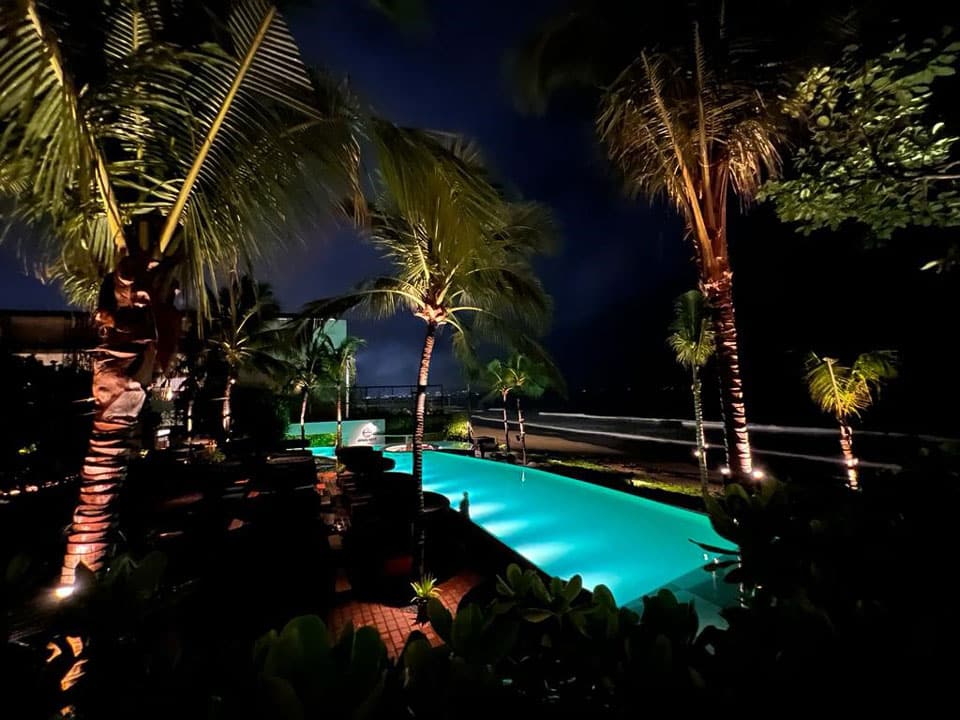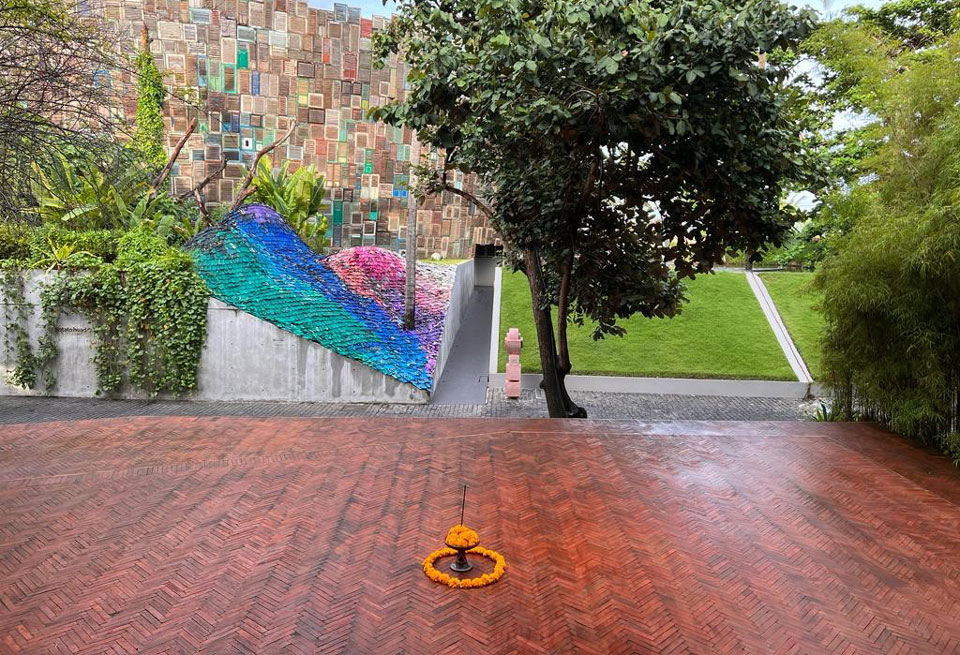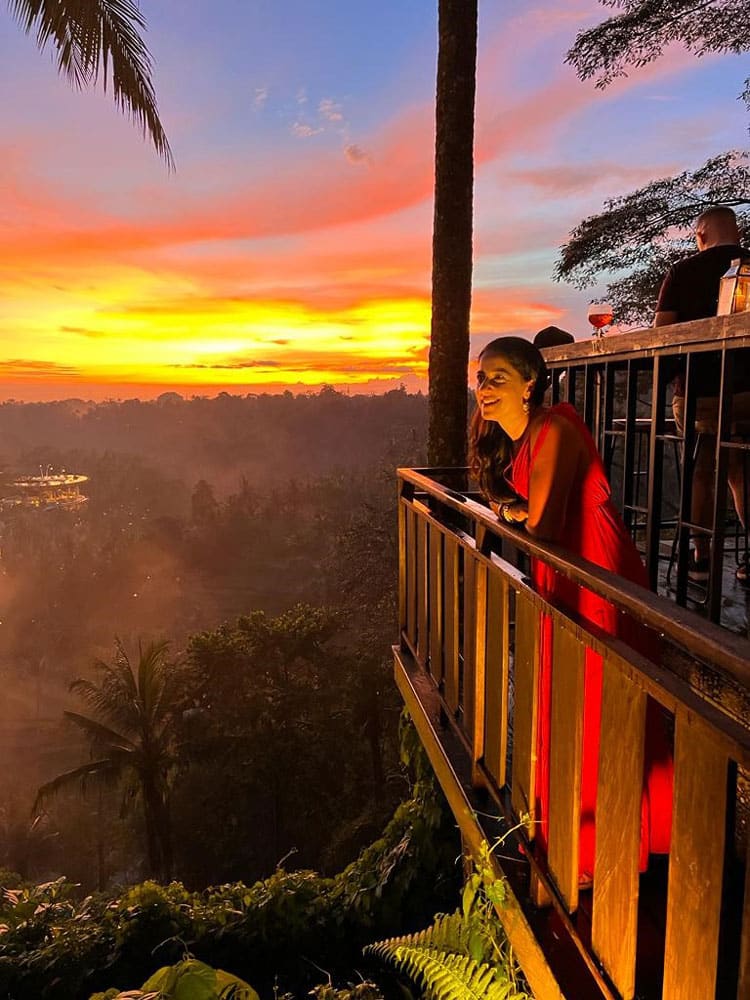Ronald Akili – placing values at the heart of sustainable tourism

I have lived, worked, or spent time in over 175 countries, exploring how values can shape countries, companies, and communities. Whilst working, on occasion, I am struck by the stories of inspirational leaders who are strongly guided by values and purpose.
This is true wealth – when you are able to mobilise resources for a cause (Mother Teresa or Mahatma Gandhi were particularly good at this), or when you know your assets or value, even if you were to lose everything material. Namely, that you know your superpower.
One such leader is entrepreneur Ronald Akili, founder of Indonesian hospitality and lifestyle brand Potato Head. I recently spent time within the Potato Head Desa (village) in Bali’s Seminyak district, comprising a beach club, hotel and several restaurants. The brand also includes properties in Hong Kong and Singapore.
Fresh from COP27, sustainability is the buzz word on the lips of every politician, CEO and entrepreneur. For many, however, it is still only green washing. Very few can commit to sustainable living – or better still, educate and enable others to.
That is where Ronald Akili, differs. His commitment to climate change, culture and community is redefining tourism and hospitality in Bali and beyond. He has been inspired to not only transform a village for future generations, but also an island, country and the wider world – guided by his values.
Channelling his passions
The third son to Indonesian tycoon Rudy Akili, Ronald was born and raised in Jakarta. As a youngster, Ronald was able to travel extensively, thanks in part to the success of his father’s travel business. His father also gave him an early introduction to the art world, as Rudy was a prolific collector who opened the iconic Akili Museum of Art to house his collection.
At just 13-years-old Ronald relocated to Hawaii, where he attended high school and then went on to major in entrepreneurial studies at university. Ronald was inspired by Hawaii’s commitment to sustainable practices and how the island was, comparably, punching above its weight.
In his youth, Ronald was called a ‘party boy’. Over time, he proved his detractors wrong by channelling his love of travel and food, culture and community, and music and art into something purposeful and inclusive. At 25-years-old, he returned to Indonesia, founded an art gallery, and then diversified into real estate. It was an auspicious start – art is now a major feature in his venues.
Ronald’s next project was a green compound, and his intention was to show that it’s possible to live a sustainable life while enjoying nature – even in a built-up city like Jakarta.
Any Venture Capitalist knows that you back the idea second, and the founder first. Akili’s passion is contagious. He his full of zeal and describes how it was his girlfriend’s cooking which was the real seed. A small restaurant, centred around her cooking, was introduced into the mix and Potato Head was born.
At a time when chic and often complex French names were en vogue, so Ronald bucked convention. He just wanted a place for his friends to hang and be well – although people often jokingly ask if his brand was named after the classic Potato Head toy (it isn’t by the way – it was an in-joke between friends).
Family values
Ronald is one of four brothers, who remain incredibly close. He is also a proud father, with four children of his own. Family is a KEY value. His love for his family and desire to build a wider extended family (which includes you), and the desire to preserve the environment for us all drives his decision-making and creative visions.

For example, he recalls his surprise and disgust at the amount of plastic in the water, when he was surfing with his first born son in the Seminyak Surfing waters. They came back that day with plastic in their hands (which was killing the fish and would never disintegrate). So he immediately set about a clean-up. Every weekend the community would join to clear the plastic, including abandoned flip flops, and now there are basket bins subtly placed on the edge of the beach. This collection resulted in the flip flop art installation by famous German art activist Liina Klaussand and a waste reduction journey from 100% to 30% to 4.1%. How? Akili found a waste auditor who measured and reduced the waste.
A new concept in sustainable hospitality
Ronald’s entrepreneurialism and continued commitment to sustainability has resulted in one of the most famous beach clubs in Bali. Potato Head Beach Club is full of life, music and joy. It’s also sustainable to a level rarely seen, all with fun at the forefront – that’s because Ronald believes good times enable people to do good.
If the vegan brownie just isn’t as moist as the vegetarian, we will wait until the chef makes it so. Taste and pleasure win the masses over. Speaking of which the restaurants are exceptional, particularly the beautifully designed vegan Tanaman – the tasting menu takes you back to the farm in the richest Balinese soil.
In early 2020, Akili rebranded Potato Head Bali as Desa Potato Head. “Desa” means “village”—to reflect its community features, including the beach club, restaurants, art installations and music studio. Design of the Desa – in particular, the hotels – is distinctive, with sustainability at the core because of award-winning architects like Jakarta-based Andra Matin who completed the hotel with local artisanship, materials and artists’ hand-crafted works from Bali. More recently he has built upon this concept through the design and build of hotel Titika Dua, in Ubud, Indonesia, which is certainly the place to stay when you travel to the centre of the island.
In collaboration with a remarkable range of design collaborators discarded materials have been refashioned into inspiring furniture pieces, meaning that Potato Head has managed to reuse or recycle 97 per cent of the hotel’s waste.
6600 disused shutters were gathered from across Java to create the vibrant, Colosseum-inspired façade of the beach house. The 1.5 million bricks (which would traditionally be used to create temples) were used to build Potato Head’s hotel, Potato Head Suites, were specifically manufactured – each hand-pressed by local artisans – creating employment for 1000 locals.
Many of the Beach Club staff had no prior experience of working in the hospitality sector and all have been encouraged to bring their private passions to work, whether that’s meditation, healing, wine pairing or alternative diets.

This waste reduction journey and education is impressive. My children and I saw how soiled linen would be used to create aprons, t-shirts or bags. How all plastic would be smelted to create colourful beads, which we still wear today as a powerful reminder that recycling is possible by us all. We went on candle making workshops and created our own keyrings – all from recycled oils or plastic.
Through Potato Head brand – with his strong values as the driving force – Ronald Akili is proof of how sustainable hospitality can be both successful and create long lasting change. The habits of my family and I were changed after the experience, and the education cannot be forgotten. It made lived and experienced sense.
Most importantly, Ronald Akili walks the walk regarding environmental action. He is not simply driving tourism to stunning destinations but making them better for future generations.
Written by Dr. Mandeep Rai.
Bring the best of the CEOWORLD magazine's global journalism to audiences in the United States and around the world. - Add CEOWORLD magazine to your Google News feed.
Follow CEOWORLD magazine headlines on: Google News, LinkedIn, Twitter, and Facebook.
Copyright 2025 The CEOWORLD magazine. All rights reserved. This material (and any extract from it) must not be copied, redistributed or placed on any website, without CEOWORLD magazine' prior written consent. For media queries, please contact: info@ceoworld.biz








